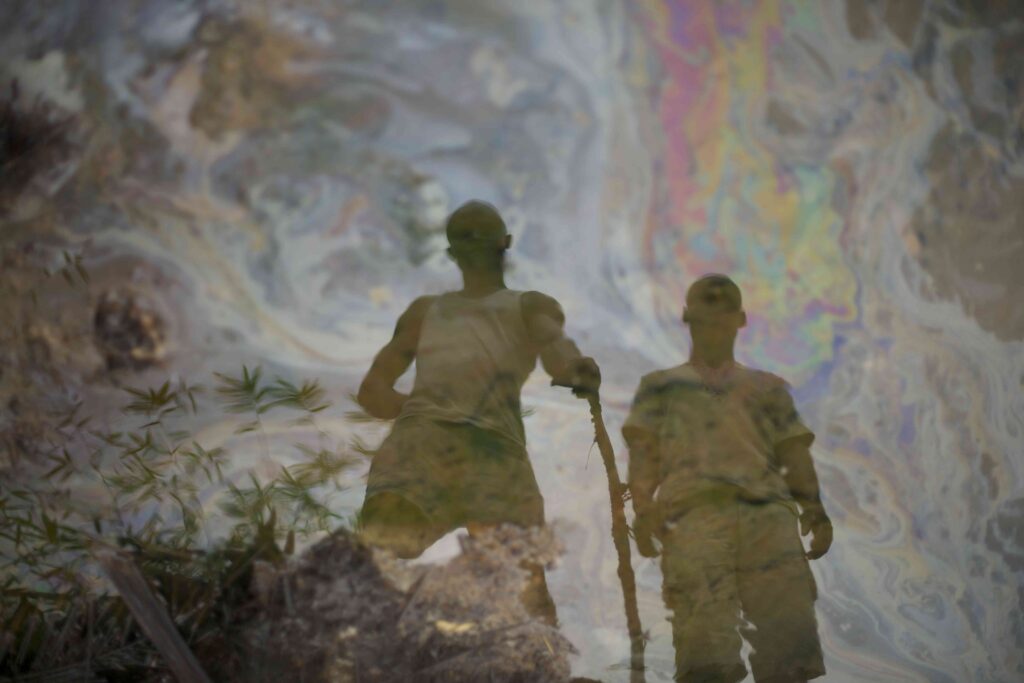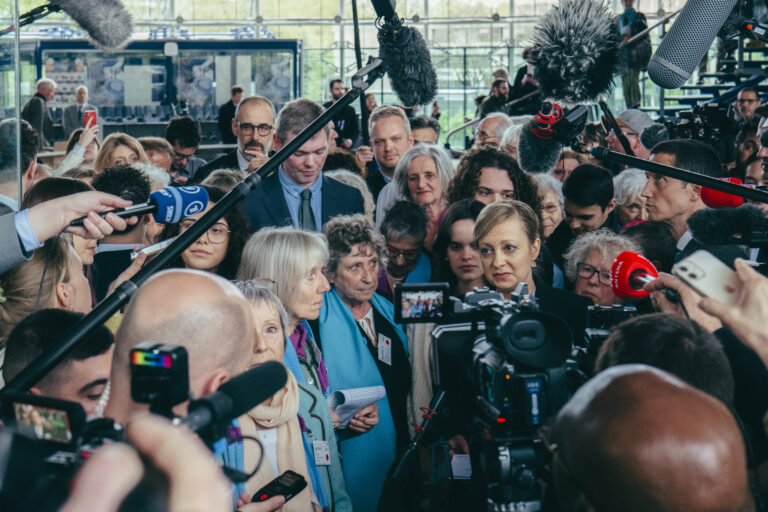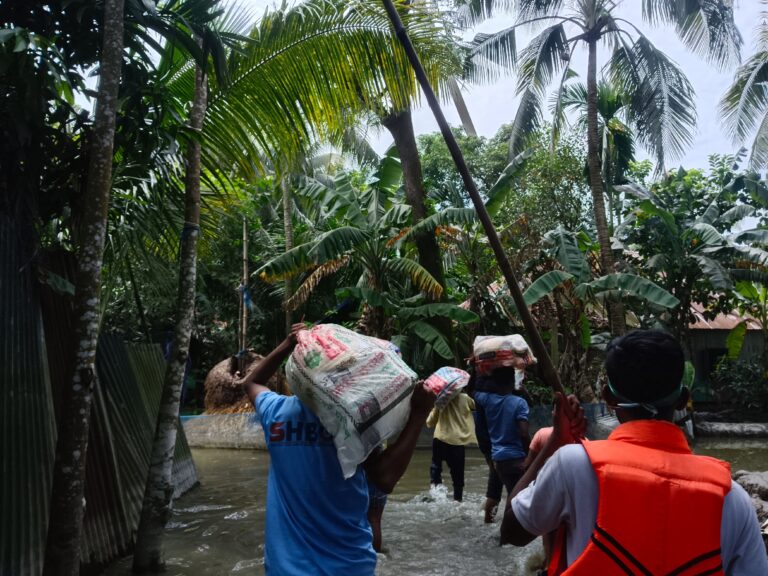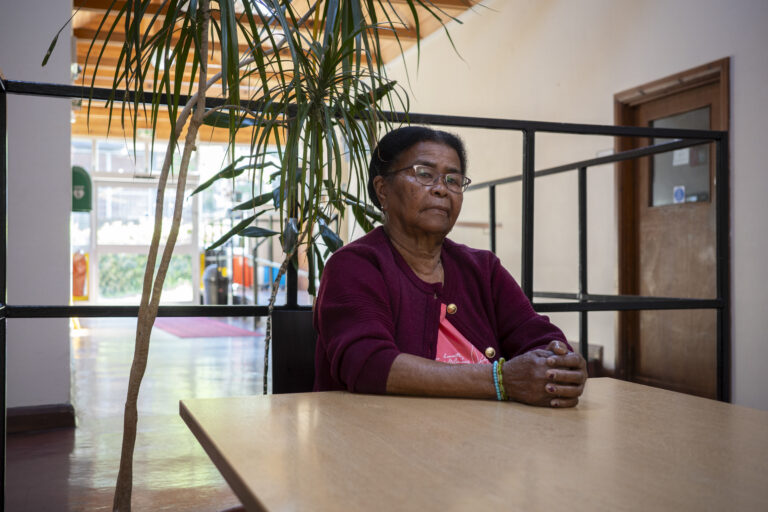On the morning of 7 May 2025, members of the B-Dere community of Ogoniland in South Nigeria woke to crude oil trickling into their fields and houses. The spill was caused by a leak from the Trans-Niger Delta pipeline, used to transport oil to export terminals on the coast from wells in other parts of the country.
This leak is one of many incidents that have blighted the lives of Ogoni people over the past 30 years. “People are dying every day of air and waterborne pollution,” explains Nwanam Gold Sorbari, an Ogoni environmental activist.
Oil extraction was banned on Ogoni soil in the early 1990s, but drilling by foreign companies such as Shell has led to severe environmental contamination in the Niger Delta. Soils, rivers, and creeks are to this day tainted by oil, leading to severe disruption to both the ecosystem and the community’s health.
Discussions are now underway to resume oil drilling in Ogoniland.
On 21 January 2025, Nigerian president Bola Tinubu announced that the country would increase its oil production from 1.5 million to 2 million barrels per year by 2027.
Speaking from the State House in the capital of Abuja and surrounded by representatives of the Ogoni community, Tinubu announced that his national security advisor would consult with local leaders to restart oil extraction in the region.
“We cannot in any way rewrite history,” he said. “But we can correct some anomalies of the past going forward. We cannot heal the wounds if we continue to be angry.”
The announcement caused an outcry from Nigerian and Ogoni environmental advocates, among them Celestine Akpobari, the national coordinator of the Ogoni Solidarity Campaign. He says that the consultation process is biased in favour of the government: “The President is consulting with leaders who are on his side, but he is completely excluding people who are against him.”
“They divide the people, they look for those that are on their side: the politicians, parliamentarians that are for oil extraction in Ogoniland, the contractors … and pretend that they are discussing with Ogoni people,” he adds.
The Movement for the Survival of the Ogoni People (MOSOP), an umbrella organisation representing the interests of Ogoni people, also refused to take part in the negotiation.
“The Office of the National Security adviser … chooses Ogoni politicians loyal to the ruling party,” says Celestine Viula, chairman and coordinator of the MOSOP.
While the MOSOP has so far distanced itself from the current process, this does not mean that it opposes oil extraction in Ogoniland. Leaders of the organisation argue that oil extraction, if properly managed, could be a source of economic empowerment.
During a press conference in April, Viula outlined that a key condition should be a 20 per cent royalty on oil profit for Ogoni people. Dr Fabeke Douglas, president of the Ogoni Liberation Initiative, also adds that oil companies should clean up the area before resuming drilling operations: “The people want to see that our environment is being protected.”
But the MOSOP’s decision to back oil extraction, even under strict rules, is dividing the Ogoni community. According to Akpobari, the organisation is currently split into different factions: “They are not even qualified to speak for the Ogoni at the moment.”
The environmental activist stands strongly against oil extraction in Ogoniland, arguing that drilling in other parts of the region has worsened living conditions: “All around the Niger Delta are oil producing communities where people are poorer because of oil … Fishermen can no longer fish and farmers are unable to farm.”
Akpobari explains that younger generations who didn’t experience the previous era of oil extraction are more enthusiastic for drilling to return.
In the past, companies drilling in Ogoniland violently repressed those who opposed their activities. The violence peaked in 1995, when then-MOSOP president Ken Saro-Wiwa was brutally executed with eight other comrades by the Nigerian army.
According to Amnesty International, Shell was complicit in these murders. While Shell has denied any involvement, the company paid a $15.5m (£9.6m) settlement to Saro-Wiwa’s family in 2009.
Nwanam Gold Sorbari explains that letting the oil industry return to Ogoniland would reopen the wounds of a bloody and painful history. “I grew up as a little girl running around with my mom, holding me to the bush when there were gunshots,” she says. “People lost their children, their mothers, their fathers and their family members. It’s not something anybody can just wake up one day and say, ‘I want oil extraction’.”
Akpobari, who is now 54, believes that the Nigerian government will resume oil extraction one way or another, a prospect that fills him with fear for the future. “I’m afraid I can’t leave here now because I’m old. The best thing would have been to relocate, go to school elsewhere,” he says. “But I have no choice. I’ll be here.”




